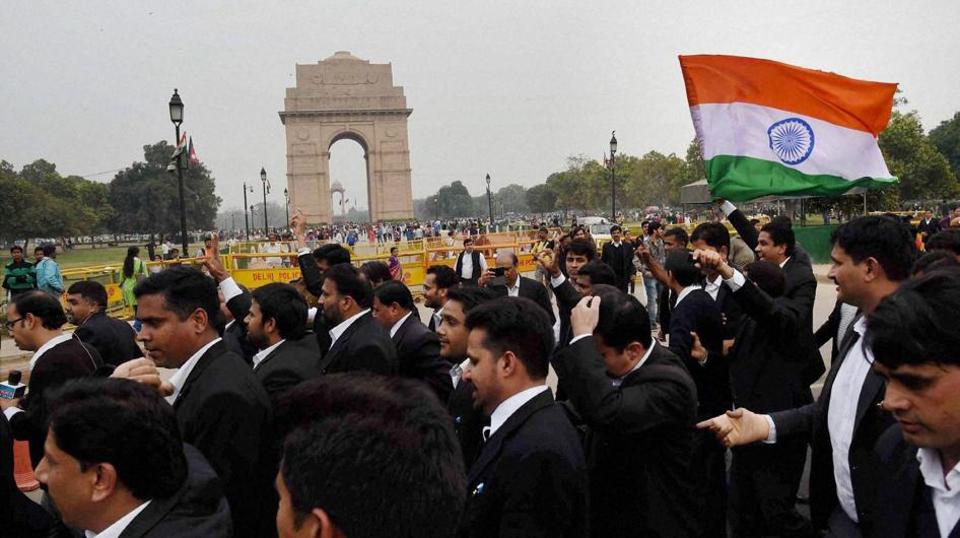BCI protests against Advocates bill
April 18, 2017 | Expert Insights

Will the nation see reforms in the current collegium system?
On the 9th of April 2017, the Bar Council of India met with High Court Representatives and State Bar Council to decide on the course of action that needs to be taken against the new Advocates Act. During the course of the said meeting it was decided that on 21st April 2017, a nation-wide protests would be held where the lawyers would burn copies of the Law Commission’s Advocates (Amendment) Bill of 2017.
Why the protest being held and what are the recommendations?
The BCI and lawyers condemn the changes proposed by the law commission in the new Advocates (Amendment) Bill 2017. The issues identified include the composition of the State Bar Councils (The Commission suggested the said SBC to be headed by retired High Court and Supreme Court Judges who would be assisted by people from non-law backgrounds)..
The BCI has urged the lawyers across the country to abstain from working post lunch on the 21st of April to showcase solidarity towards the protest. The BCI further demanded the resignation of Chairman of the Law Commission Justice BS Chauhan along with demands for schemes and benefits for lawyers and their dependents. The BCI also urges the Union Government to replace the existing Collegium system with a new legilation. The BCI has also declared that in case any of the recommendations are not taken into consideration, a march from Patiala House to Rajghat along with the ‘Jail Bharo Campaign’ would be held in protest on the 2nd May 2017.
What is the Collegium System?
Post Second Judge’s Case, a ‘Collegium’ (three-member body consisting of CJI and two senior most judges with CJI getting primacy) was to be set up for the appointment of judges in higher judiciary. In the Third Jude’s Case the decision of the previous judgement was upheld. The case however emphasised on primacy of the Collegium over the CJI and increased the composition of the Collegium from 3 to 4 Judges (including the CJI and 3 Senior most judges). The Fourth Judges Case further declared NJAC Act 2014 unconstitutional. Also The 1+2 and 1+4 Collegiums also stand operative with this this judgment for appointments of judges to High Courts and the Supreme Court.
Assessment
The Collegium system has both advantages as well as flaws. Despite this, what needs to be accounted for is the standard and quality of judges appointed in the higher judiciary. Either amendments to the existing system or a new legislation as proposed by the Bar Council of India should tackle this issue and ensure that quality judges are being appointed in India.








Comments